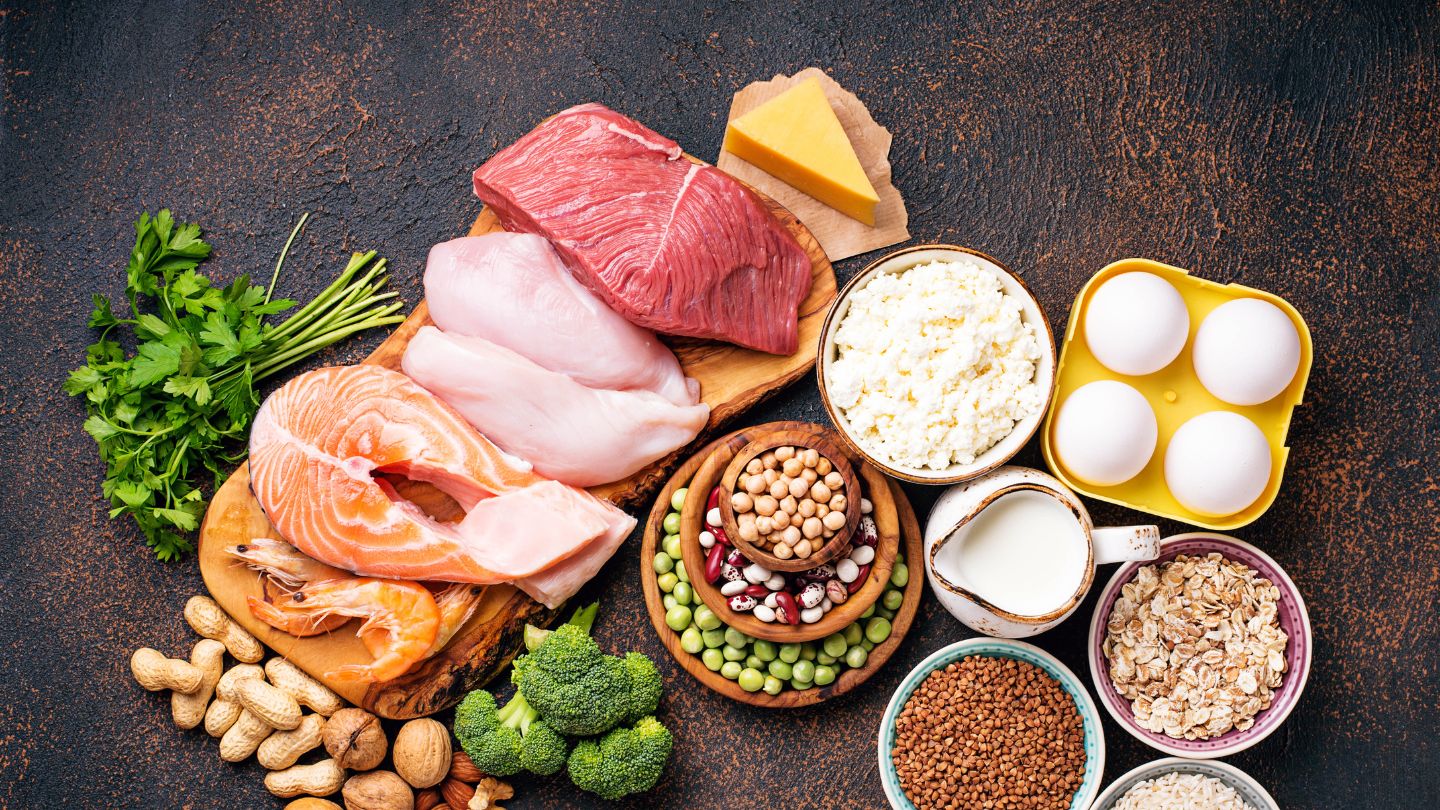When it comes to shedding unwanted pounds and maintaining healthy body composition, one dietary strategy consistently backed by science is a high-protein diet. Whether you’re just beginning your weight loss journey or striving to maintain your results, high-protein foods can play a powerful role in optimizing fat loss, preserving muscle mass, and keeping hunger at bay.
Understanding the role of protein in weight loss goes far beyond simply counting calories. It’s about fueling your body with the right nutrients, supporting metabolic health, and building sustainable habits that help you lose weight and keep it off long-term. Let’s break down how a diet rich in high-quality protein can support your weight management goals.
Why Protein Matters in a Weight Loss Diet
Protein is more than just a macronutrient—it’s an essential nutrient your body needs to function properly. It’s made up of amino acids, which serve as the building blocks for everything from tissues and enzymes to hormones and immune cells.
When trying to lose weight, increasing your protein intake has multiple benefits:
- Promotes satiety: Protein helps you feel fuller for longer, naturally leading to fewer calories consumed throughout the day.
- Preserve lean body mass: Higher dietary protein intake supports the maintenance of lean body mass, especially when combined with physical activity.
- Supports metabolism: Digesting protein requires more energy than carbohydrates or fats—a phenomenon known as the thermic effect of food (TEF)—which slightly boosts your calorie burn.
- Reduces cravings: A high-protein breakfast may help reduce late-night snacking and unhealthy food cravings.
How Much Protein Do You Really Need?
The dietary guidelines recommend a daily intake of 0.8 grams of protein per kilogram of body weight for general health. However, for weight loss and muscle preservation, most experts suggest a higher protein intake—ranging from 1.2 to 2.2 grams per kilogram depending on individual needs, goals, and physical activity levels.
This is especially important during calorie restriction when there’s a greater risk of muscle loss. Incorporating enough high-protein foods into your meals ensures that your body weight reduction comes primarily from body fat, not lean tissue.
Best High-Protein Foods for Fat Loss
The key to success is choosing high-protein food options that are also low in saturated fat and refined carbs. Focus on a mix of animal-based and plant-based protein sources to meet your protein needs while keeping your diet balanced.
Lean Animal Proteins
- Lean meat: Chicken breast, turkey, lean cuts of beef, and pork tenderloin offer high protein content with lower fat levels.
- Eggs: A complete source of essential amino acids, eggs are versatile and highly nutritious.
- Whey protein: Derived from milk, whey protein is quickly absorbed and ideal for post-workout recovery.
- Fish and seafood: Tuna, salmon, and shrimp provide complete protein and are rich in healthy fats like omega-3s.
Plant-Based Proteins
- Legumes: Beans, lentils, and chickpeas are packed with plant-based protein and fiber, which support digestion and satiety.
- Quinoa: A rare plant-based complete protein, quinoa offers all nine essential amino acids.
- Tofu and tempeh: Soy-based options are excellent protein sources for vegetarians or those reducing meat intake.
- Nuts and seeds: While higher in fat, almonds, chia seeds, and pumpkin seeds offer good amounts of protein when eaten in moderation.
Protein Supplements
If you’re not meeting your protein needs through whole foods alone, protein powder can be a convenient way to supplement your intake. Look for options with minimal additives and no added sugar.
Timing and Distribution of Protein Intake

To make the most of a higher protein diet, it’s not just about how much protein you eat—but when and how you eat it.
- Spread it out: Aim to include protein-rich food in every meal and snack to stabilize blood sugar and energy levels.
- Don’t skip breakfast: Starting your day with a high-protein breakfast has been shown to improve appetite control and reduce overall calorie intake.
- Post-workout nutrition: Refueling with protein after exercise supports muscle recovery and growth, helping you maintain lean body mass while losing body fat.
Avoiding Common Pitfalls
While increasing your protein intake has many benefits, it’s important to do so mindfully. Here are some common mistakes to avoid:
- Relying too heavily on processed meats: These may be high in saturated fat and sodium.
- Ignoring portion control: Even healthy foods can contribute to weight gain if consumed in excess.
- Neglecting variety: A healthy diet includes a wide range of protein sources, fiber, and micronutrients.
- Overusing protein supplements: Whole foods should always be your primary source of nutrition; use protein powder only as needed.
High-Protein Diets and Long-Term Weight Management

Perhaps the most powerful benefit of a higher protein diet is its ability to support long-term weight maintenance. Many people struggle with weight regain after initial fat loss, but maintaining a high-protein eating pattern can help prevent this.
By preserving muscle mass, reducing hunger, and supporting metabolic rate, high-protein foods contribute to sustained weight management—especially when combined with a personalized lifestyle plan that includes physical activity, hydration, sleep, and stress management.
Is a High-Protein Diet Right for You?
Not everyone has the same nutritional needs. Your age, activity level, medical history, and health goals all influence your ideal protein intake. Individuals with certain health conditions—such as kidney disease—may need to limit dietary protein, making personalized guidance essential.
At Dew Medical Clinic, we believe in the power of customized care. Our non-surgical weight loss programs are designed to support your health journey through physician-led strategies that address nutrition, metabolism, and lifestyle habits.
Summary
Adding more high-protein foods to your daily meals can significantly enhance your weight loss journey. By curbing hunger, boosting metabolism, preserving lean body mass, and reducing the risk of weight regain, a higher protein diet offers a proven, effective path to achieving and maintaining a healthy body weight.
At Dew Medical Clinic, we provide expert-led solutions for medical weight loss in Houston. Our non-surgical programs are designed to safely support your goals with personalized care, including tailored nutrition strategies and guided protein intake to ensure long-term success. Ready to take control of your weight loss journey? Contact us today and start transforming your health.


